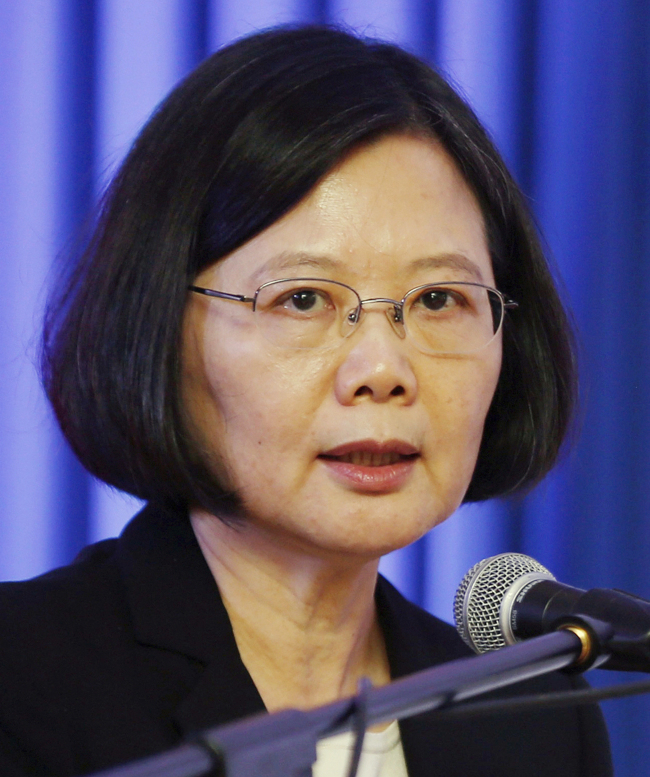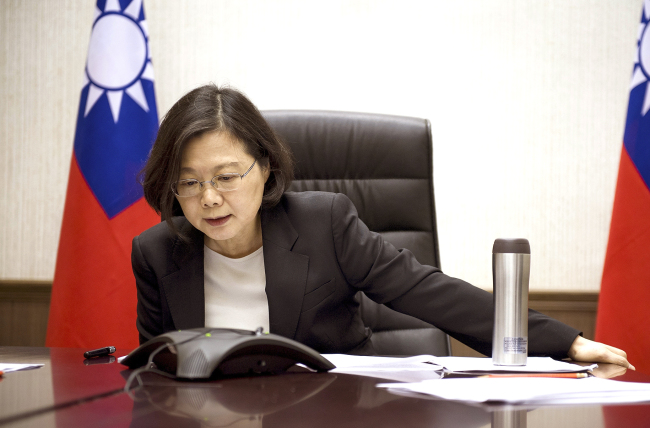The government of Taiwan has been harnessing all efforts to invigorate its economy by launching the Asia Silicon Valley Development Plan, which is to create a hub of innovation and entrepreneurship for the island nation’s knowledge-based economy, according to its representative office in Seoul.
Announced by Taiwanese President Tsai Ing-wen in September, the scheme will hatch a haven of research and development and commercialization in the northwestern city of Taoyuan, acting as a magnet for talented young entrepreneurs in the internet age.
“Taiwan expects to become an attractive startup destination for young Asians and a model of digital innovation and entrepreneurship,” the government announced last September.
The project is a major component of the Tsai administration’s economic reform plan, dubbed the “five-plus-two” innovative industries initiative. It comprises biotech and pharmaceuticals, green energy, national defense and smart manufacturing, as well as the two paradigms of circular economy and sustainable agriculture.
Announced by Taiwanese President Tsai Ing-wen in September, the scheme will hatch a haven of research and development and commercialization in the northwestern city of Taoyuan, acting as a magnet for talented young entrepreneurs in the internet age.
“Taiwan expects to become an attractive startup destination for young Asians and a model of digital innovation and entrepreneurship,” the government announced last September.
The project is a major component of the Tsai administration’s economic reform plan, dubbed the “five-plus-two” innovative industries initiative. It comprises biotech and pharmaceuticals, green energy, national defense and smart manufacturing, as well as the two paradigms of circular economy and sustainable agriculture.

The $360 million plan targets enhanced linkages with advanced tech clusters worldwide; the construction of Internet of Things supply chains across the country, backed by commercialization schemes; and establishing diverse test beds for smart products and services.
The project also aims to increase Taiwan’s global IoT market share to 5 percent by 2025 and incubate 100 successful companies, both local startups and conglomerate-owned research and development centers. The implementation period continues through 2023.
The budget has been allocated this year to improve the country’s internet infrastructure, mobile broadband services, electronic commerce, smart application systems, test beds and industry-academia collaboration, according to the National Development Council.
Taiwanese Premier Lin Chuan has stressed that the objective of the plan is to transform the country’s economic structure along innovation, similar to “Industry 4.0” initiatives taking hold around the world, including in top-tiered Southeast Asian economies like Malaysia and Thailand.
Speaking at a government event in late April, he said synergy across the “five-plus-two” sectors holds the key to unlocking the project’s laden potential.
“We must attract new talented individuals to Taiwan both from abroad and within,” he stressed, adding that the project should also provide space and opportunities for young Taiwanese people. The government is in the process of harmonizing tax and social welfare incentives for foreign workers, in addition to simplifying the visa application process.

“For young Korean tech talents to find employment or startups to create jobs in Taiwan, tax incentives and marketability will be crucial factors in their investment and other decisions,” said professor Kim Kyung-min of Seoul National University’s Graduate School of Environmental Studies in an interview with The Korea Herald.
Pointing to the increasing number of Koreans who are seeking and finding jobs in Japan, particularly in the information technology and engineering sectors, he said living conditions and remuneration level should be high enough for their relocation.
“Taiwan is entering a crowded field already dominated by Japan, South Korea and increasingly China -- all regional competitors in IoT and digital innovations,” wrote David Sutton, a research analyst at the NATO Association of Canada, for the Diplomat.
Taiwan, which has risen to be one of Asia’s “four economic tigers,” has seen its growth falter in recent years in the absence of economic reforms and ever-increasing diplomatic isolation by China, which regards the island nation as its estranged province.
Tsai’s Democratic Progressive Party, elected on the promise of revitalizing the economy and treading a more independent path away from Beijing, has pushed forward its New Southbound Policy, aimed at shoring up trade, agricultural, cultural, educational and tourism links with the Association of Southeast Asian Nations, New Zealand and Australia.
Diplomatic relations between Taipei and Seoul were terminated on Aug. 23, 1992, after Seoul officially established ties with Beijing.
By Joel Lee (joel@heraldcorp.com)
-
Articles by Korea Herald








![[Graphic News] More Koreans say they plan long-distance trips this year](http://res.heraldm.com/phpwas/restmb_idxmake.php?idx=644&simg=/content/image/2024/04/17/20240417050828_0.gif&u=)
![[KH Explains] Hyundai's full hybrid edge to pay off amid slow transition to pure EVs](http://res.heraldm.com/phpwas/restmb_idxmake.php?idx=644&simg=/content/image/2024/04/18/20240418050645_0.jpg&u=20240419100350)






![[From the Scene] Monks, Buddhists hail return of remains of Buddhas](http://res.heraldm.com/phpwas/restmb_idxmake.php?idx=652&simg=/content/image/2024/04/19/20240419050617_0.jpg&u=20240419175937)

![[KH Explains] Hyundai's full hybrid edge to pay off amid slow transition to pure EVs](http://res.heraldm.com/phpwas/restmb_idxmake.php?idx=652&simg=/content/image/2024/04/18/20240418050645_0.jpg&u=20240419100350)

![[Today’s K-pop] Illit drops debut single remix](http://res.heraldm.com/phpwas/restmb_idxmake.php?idx=642&simg=/content/image/2024/04/19/20240419050612_0.jpg&u=)